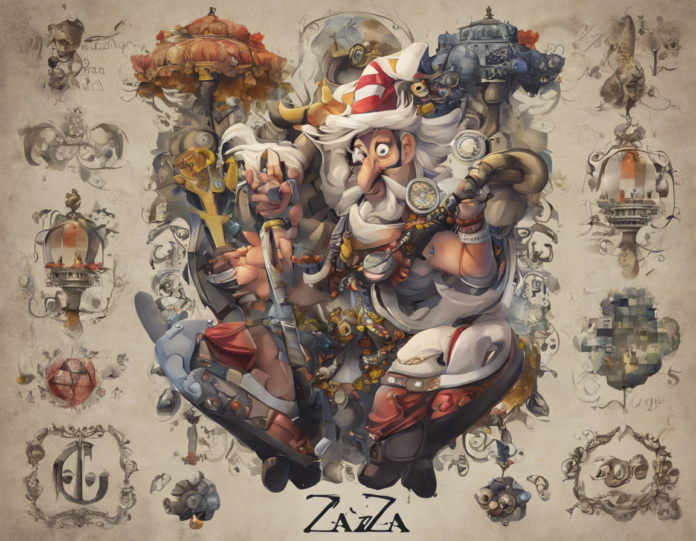Introduction
Zaza culture is a unique and vibrant tapestry of traditions, beliefs, art forms, and customs that originate from the Zaza people. The Zaza are an ethnic group primarily located in eastern Turkey, with significant populations also found in western Iran and several other countries in the region. Despite being relatively lesser-known compared to some other cultures in the area, Zaza culture is rich with history and offers a fascinating glimpse into a distinctive way of life. In this article, we will delve into the various facets of Zaza culture, exploring its history, language, arts, cuisine, and much more.
History of Zaza Culture
The history of Zaza culture is a complex amalgamation of various influences that have shaped the identity of the Zaza people over centuries. The Zaza are believed to be descendants of the ancient Hurrians, an indigenous people of the region with a rich history dating back to antiquity. Over the centuries, the Zaza have interacted with and been influenced by various other cultures and civilizations, including the Armenians, Kurds, Persians, and Ottomans. These interactions have played a significant role in shaping the unique cultural identity of the Zaza people.
Language and Literature
One of the most distinctive aspects of Zaza culture is its language. The Zaza language, also known as Zazaki, is a Northwestern Iranian language that is spoken by the Zaza people. Zazaki is known for its rich literary tradition, with a wealth of poetry, folk tales, and historical texts written in the language. Despite facing challenges from dominant languages in the region, efforts are being made to preserve and promote the Zaza language, with initiatives such as language courses and advocacy for its inclusion in educational curricula.
Art and Music
Zaza culture is also renowned for its rich artistic traditions. Zaza art encompasses a wide range of forms, including intricately woven carpets, traditional ceramics, and vibrant textiles. These artistic expressions often feature intricate patterns and motifs that reflect the cultural heritage of the Zaza people. In addition to visual arts, music plays a central role in Zaza culture. Traditional Zaza music, characterized by its lively rhythms and evocative melodies, is an integral part of celebrations, weddings, and other social gatherings.
Cuisine and Culinary Traditions
The cuisine of the Zaza people is a savory reflection of their cultural heritage and geographical influences. Zaza cuisine features a diverse array of dishes, ranging from hearty stews and kebabs to flavorful vegetarian fare. Common ingredients in Zaza cuisine include lamb, chickpeas, eggplant, and a variety of herbs and spices. Popular dishes include dolma (stuffed vegetables), piti (a meat and chickpea stew), and various types of flatbreads. The culinary traditions of the Zaza people highlight the importance of food not just as sustenance but as a social and cultural bond.
Religious Beliefs and Practices
Zaza culture is characterized by a syncretic blend of religious beliefs and practices. While the majority of Zaza people are adherents of Sunni Islam, elements of pre-Islamic beliefs and rituals are also present in Zaza culture. The veneration of nature, ancestral spirits, and local saints plays a significant role in Zaza religious practices. Pilgrimages to sacred sites, shrines, and natural landmarks are an important aspect of Zaza spirituality. This fusion of Islamic traditions with indigenous beliefs underscores the cultural diversity and fluidity of Zaza religious practices.
Celebrations and Festivals
Celebrations and festivals are an integral part of Zaza culture, providing occasions for community bonding, artistic expression, and religious observance. Traditional Zaza festivals often revolve around agricultural seasons, religious holidays, and life cycle events. One of the most important festivals in Zaza culture is Newroz, the Persian New Year, which is celebrated with music, dance, feasting, and symbolic rituals. Other festivals include weddings, harvest festivals, and commemorative events honoring historical figures and saints. These festive occasions showcase the vibrancy and resilience of Zaza traditions.
Frequently Asked Questions (FAQs)
- What is the significance of Zaza language in Zaza culture?
-
The Zaza language is a key component of Zaza cultural identity, serving as a vehicle for oral traditions, poetry, and historical narratives.
-
How do Zaza artistic traditions reflect the cultural heritage of the Zaza people?
-
Zaza art, including textiles, ceramics, and carpets, often features motifs and patterns that symbolize aspects of Zaza history and identity.
-
What are some staple dishes in Zaza cuisine?
-
Staple dishes in Zaza cuisine include piti (a meat and chickpea stew), dolma (stuffed vegetables), and various types of flatbreads.
-
How do Zaza religious practices differ from mainstream Islamic practices?
-
Zaza religious practices incorporate elements of pre-Islamic beliefs, nature worship, and local saint veneration, creating a unique syncretic tradition.
-
Which are the major festivals celebrated in Zaza culture?
- Major festivals in Zaza culture include Newroz (Persian New Year), weddings, harvest festivals, and commemorative events honoring historical figures and saints.
In conclusion, Zaza culture stands as a testament to the resilience, creativity, and diversity of the Zaza people. From their distinctive language and artistic traditions to their rich culinary heritage and syncretic religious practices, the Zaza offer a captivating window into a world shaped by centuries of history and cultural exchange. By celebrating and preserving the unique elements of Zaza culture, we can appreciate the depth and beauty of this enigmatic cultural tapestry.

